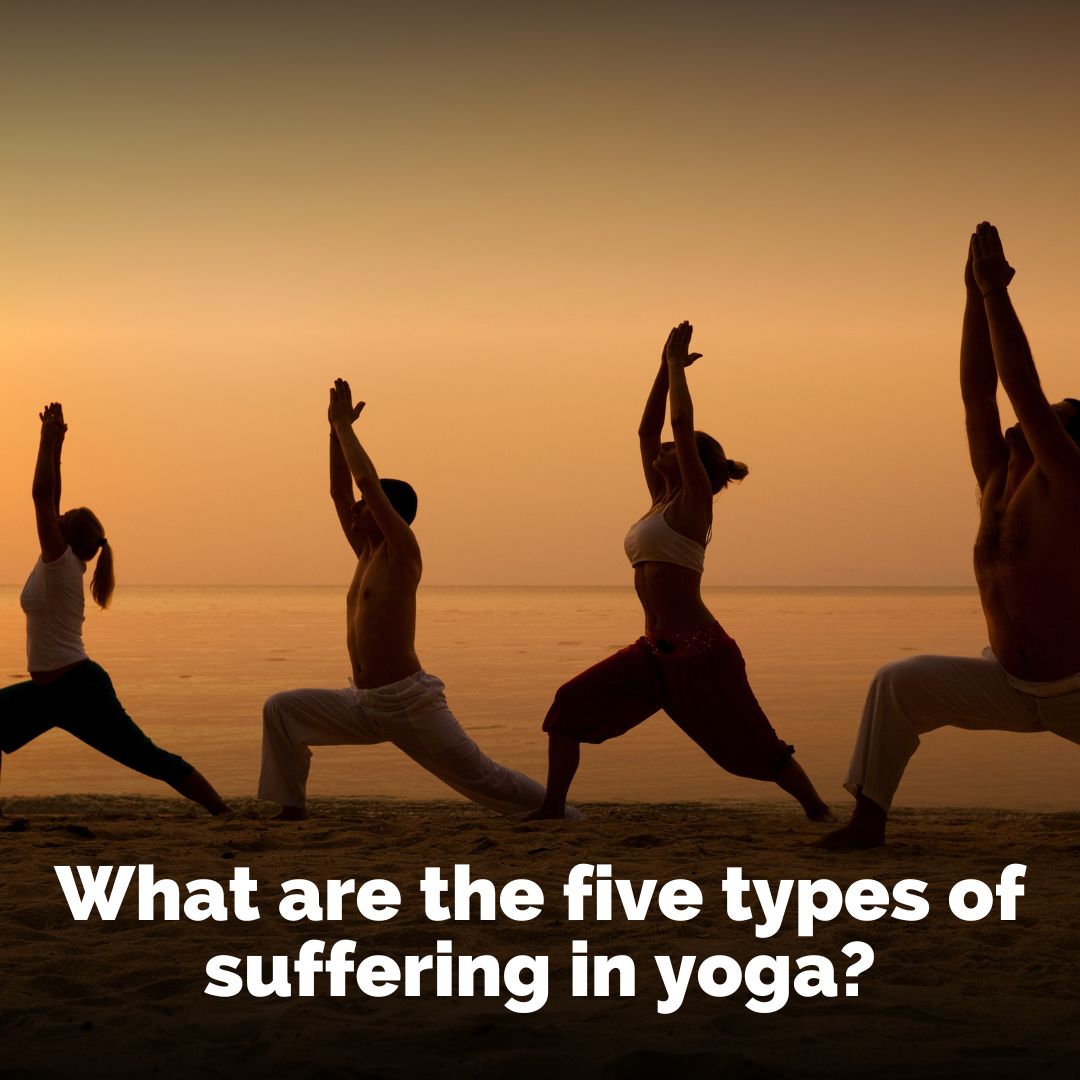Patañjali, the author of yoga-sutras, describes in the psychology of yoga the five kleśas, or the sufferings within the mind, and identifies the causes. Here they are in broad categories: avidya, asmita, raga, dvesa, and Abhiniveśataḥ.
1. Avidya
The first kind of suffering is avidya. Vidya means knowledge, and avidya means no knowledge. We often see it translated from Sanskrit into ignorance.
What is the crux of avidya?
This avidya means that we make a mistake and think we are our body. We’re actually not a physical or mental body. We’re a non-neural, non-chemical, non-temporal particle of antimatter that’s spiritual, within the body, and categorically different from matter.
But we think “I’m my body.”
We think “I’m an American,” or “I’m from California.”
These are only very temporary identities that we adhere to as we pass through, and say, “Oh, this is me; this is what I am.” But that’s not true. You’re not actually your body.
2. Asmita
The second type of suffering according to yoga is asmita, which means ego. Ego is the sense that you transform the things around you from things into my things. We say “these are mine.”
We actually don’t own anything.
We come into the world naked, and we leave it naked.
While we’re here, we look around like kings and conquerors. We look around and say, “This is my ocean. That’s my land.”
Mother Earth is laughing, saying, “What are you talking about? You’re only here for five minutes in geological time. You just got here a couple seconds ago, and you’re going to leave in a few minutes.”
But we continue to claim ownership.
This material desire is a mistake which can be the cause of much suffering.
3. Rāga and 4. Dveṣa
Rāga and dveṣa, which mean attachment and aversion, go together like two sides of a coin. Attachment and suffering are caused by previous impressions in the mind.
Because we had a pleasurable experience with something in the past, we have an attachment to it now. We’re compelled towards it.
We have, for the same opposite reason, an aversion to it, called dveṣa. This is because of our previous impressions; how we moved about through karma.
5. Abhiniveśataḥ
Abhiniveśataḥ means “clinging to life.” Now, not to mention a sore subject, but everyone can leave this body anytime. We don’t even have a lease signed for how long we stay here.
But there’s a sense that Patañjali says, “I’m gonna stay here forever. And I’ll do whatever I have to do”, which also is essential.
Of course, we’re not advocating that anybody be reckless; that it doesn’t matter because the body is just a vessel. Quite the opposite, the body is an essential vessel for our purpose here.
However, the idea of clinging to life that “I’ll stay here in this particular body forever,” is considered a kleśa, a type of suffering. It’s actually one of the most significant causes of suffering because of trying to transform that which is temporary into something permanent.
Why do we feel these five types of suffering?
We have a particular conception of which way our lives should go.
Have you ever noticed that if you hear somebody on the radio, and then you see their picture and think, “that’s not them! They don’t look like that. Their voice it’s totally different.” Your mind had already made a picture.
Similarly, our minds picture how our lives are supposed to look.
So often, people dream about their graduation; going up on stage, and everyone cheering just for them. And then when it doesn’t go that way, it’s pretty alarming.
These worries are a kind of vṛtti or “churning of the mind.” It’s an energy that moves through the mind and is a product of the lower modes of nature.
Generally, moroseness and worry are tinged by tamas, the lower energy of nature. You can notice this as you become more introspective and aware that you are not your mind.
How do we overcome the five types of suffering?
One of the main themes of the Bhagavad-gītā is to become dhīra or tolerant of the changes within the mind because they’re like seasons. Your mind goes through seasons: winter, summer, spring, autumn, etc.. They’re constantly changing, and you still have to move through them.
Your life situation is not you either. It’s something that you’re moving through and is constantly changing, just like a river is constantly changing.
You’ll start to notice lower energies within your own mind and, even with just a molecule of perspective, be able to distinguish yourself from it; look at it and say, “Oh, yeah, that’s moving in a certain direction.” Then you can develop some tolerance because these things come and go.
Please drop me a note with your realizations or if you have any questions/comments using Ask Vaish form. I would really like to hear from you.
0
